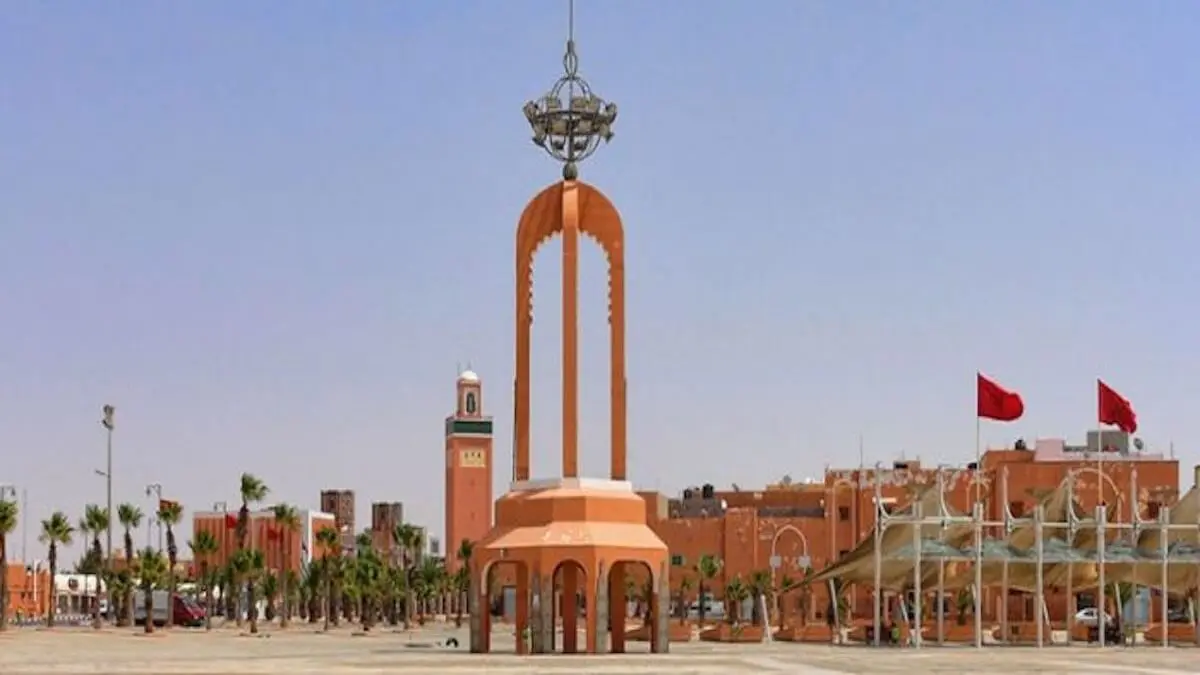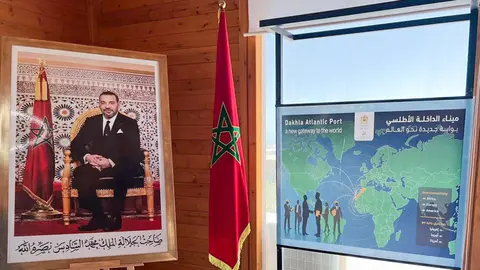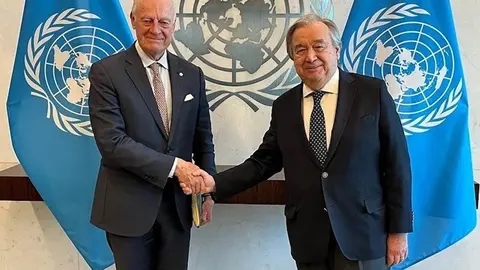Throne Speech: a call for peace, an end to the conflict and respect for international law

This speech represents a genuine call for peace, security, development, alliance between peoples and the peaceful resolution of conflicts.
The Coalition affirms that the Kingdom of Morocco's call for openness to the regional environment and its immediate neighbours will contribute to understanding the ties between the Moroccan and Algerian peoples, remove obstacles to the opening of borders, which have been closed since 1994, and revitalise development projects in the Maghreb and integration between the two neighbouring countries, as well as between them and the countries of the northern and southern Mediterranean.
The clarity and firmness of the royal position on the deep human and historical ties that unite the Moroccan and Algerian peoples, and their connection through language, religion and geography, can only be matched by a serious and responsible commitment on the part of neighbouring Algeria to address the shortcomings that have plagued the peoples of the region, reject discord and rectify its positions towards its northern neighbour in order to consolidate unity based on a deep understanding of a shared destiny and of the civilisational, cultural and identity-forming tributaries that embrace the points of convergence between the Algerian and Moroccan peoples.
While we commend the genuine commitment to extend a hand to Algeria and Morocco's willingness to engage in a frank and responsible dialogue, and consider this a step forward in ending the outstanding differences between the two countries, we call on Algerian leaders, political parties and civil society to respond positively to this sincere invitation to engage in a serious dialogue on the reasons for the strained relations between the two countries, and to discuss the question of interacting with the real will expressed in the royal speech and involving all shades of the Algerian political and civil spectrum, based on our conviction in the alliance of Sahrawi NGOs of the need to work in partnership within an inclusive framework, where diversity is considered a source of wealth and not a threat, and which requires the participation, investment and full commitment of governments, political bodies and components of civil society, in order to achieve a strengthened understanding, reject all causes of division and defend unity and good neighbourly relations in order to celebrate this diversity fused with the common values of the peoples of the region.
As non-governmental organisations working in the field of human rights in the Sahara region and North Africa in general, we wish to express our concern at the suffering of our Sahrawi brothers and sisters in the Tindouf camps as a result of the denial of their legal status entitling them to protection under the International Convention on the Status of Refugees and its Additional Protocol, and by the continued commission of serious violations against Sahrawi civilians in the camps and their surroundings without any investigation into the causes and contexts of these crimes or the attribution of responsibility and sanctions to the perpetrators.
Given the growing international recognition of the credibility and validity of the autonomy proposal presented by the Kingdom of Morocco in 2007 as an advanced solution to end the suffering of the Sahrawi people in the Tindouf camps, and the praise of many countries and governments for the Kingdom of Morocco's achievements in protecting and promoting human rights at the local, national and international levels, and strengthening international cooperation, and the majority of Sahrawis expressing their acceptance of the plan presented as a balm for the wounds of the Sahrawi people and a solution that will contribute to the efforts of reunification, following the royal appeal ‘The homeland is forgiving and merciful’, which ensured the return of more than 15,000 Sahrawis to their homeland and allowed them to live with dignity in their land in a climate characterised by the rule of law and secure access to rights and freedoms.
The time has come to devise new mechanisms to support and strengthen this diplomatic momentum, activating the national institutions involved in the dynamics of defending the Moroccan Sahara, strengthening the dynamism of civil society components capable of reaching a wider audience, and demonstrating the Kingdom of Morocco's willingness to end the artificial conflict and reinforce international conviction regarding the validity, credibility and seriousness of the autonomy plan as an innovative solution to the most complex conflicts, due to the interrelation of internal, external and geostrategic factors that have hindered its resolution for five decades.
On this basis, the Alliance of Sahrawi NGOs urges:
- The need for the Algerian authorities to be receptive to the genuine call to initiate a frank and responsible dialogue that overcomes the obstacles preventing the resolution of outstanding issues between the two countries, ensures communication between the two brotherly peoples and revitalises the ties of neighbourliness and brotherhood that unite them.
- Urge the Moroccan authorities to take concrete measures and actions to implement expanded regionalisation mechanisms on the ground, supporting the components and competences of the southern provinces and involving them in the implementation of policies aimed at laying the foundations for the autonomy proposal, in line with the rapid development and real progress of the region.
- Encourage openness to dialogue and public debate on international legal issues related to territorial integrity and its protection against partition projects, and explore experiences of autonomy, both in academic and university research institutions and in the civil sphere, to ensure the wide dissemination of knowledge.
- Support initiatives to highlight the historical, religious and cultural links between the regions of the Sahara and the rest of Morocco, and contribute to cooperation programmes and the building of bridges of civil communication between the Kingdom of Morocco and Algeria, with a view to correcting stereotypes about the Moroccan character of the Sahara generated by past mistakes.
- Combat widespread hate speech related to the conflict and contribute to building more peaceful and just societies, creating conditions for harmonious coexistence in the Maghreb region, without discrimination, persecution or virulent attacks against those who support the Moroccan Sahara, and working to build an inclusive space that promotes national and regional reconciliation.
- Intensify national and regional efforts to combat the rise of disinformation, dangerous lies and hate speech on social media in relation to attempts to present the Moroccan Sahara conflict as a question of decolonisation rather than as a means of completing Morocco's territorial integrity.
- Work to encourage Maghreb countries to bring their national policies into line with the requirements of international law regarding territorial integrity and its protection against external threats or interference, guided by the provisions of Article 2, paragraph 4, of the Charter of the United Nations, which prohibits the use of force against the territorial integrity or political independence of any State.


